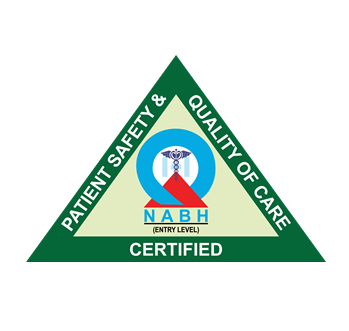
Early Warning Signs of Cancer You Should Never Ignore
Cancer can feel like an abstract, scary word, something that happens to other people. But cancers often begin with small, sometimes subtle changes to the body. Spotting those early changes and having them checked can make a significant difference in treatment and outcomes. Below is a clear, patient-friendly guide to the most important signs to watch for, the factors that influence these signs, and how doctors investigate them.
What to look out for: common cancer signs and symptoms
There’s no single symptom that means cancer, and many of the things below are far more likely to be caused by something harmless. Still, if any of these persist or are unusual for you, it’s sensible to see a clinician:
- A lump or swelling anywhere on the body that doesn’t go away
- Unexplained bleeding or discharge (for example, blood in the urine or stool, unusual vaginal bleeding, or coughing up blood).
- Persistent change in bladder or bowel habits, or difficulty swallowing.
- Unexplained weight loss and loss of appetite.
- Ongoing, unexplained pain (for example, persistent stomach or back pain)
- A persistent cough, hoarseness or breathlessness that doesn’t settle.
- Changes to the skin, a new mole, changes in an existing mole, a sore that won’t heal, or yellowing of the eyes or skin (jaundice).
- Extreme tiredness or unexplained fever and night sweats.
These are the typical red flags health services use to decide whether further tests are needed. Different cancers cause different symptoms, but these broad signs are ones GPs and hospital teams take seriously.
What affects how symptoms show up?
Several factors influence whether and how cancer signs appear:
- The type and location of the cancer – a cancer in the bowel will tend to cause digestive symptoms, whereas a skin cancer will usually be visible.
- The stage of the disease – earlier cancers may cause only very mild or no symptoms; later-stage cancers tend to cause stronger, more general symptoms like weight loss or pain.
- Personal and social factors – people who delay seeing a doctor because of fear, busy lives, or limited access to care are more likely to be diagnosed later, when symptoms are more obvious.
- Underlying health conditions and age – some symptoms (for example, tiredness or indigestion) may be put down to other illnesses, especially in older adults, which can delay diagnosis.
- Detecting cancer while it is still small often leads to simpler and more successful treatment, which is why awareness and timely help-seeking matter so much.
How cancer is investigated – the diagnosis pathway
If a clinician suspects cancer from symptoms and a basic examination, the next steps typically include one or more of the following:
- Blood tests – to check general health and look for markers that might point to particular cancers.
- Imaging scans – such as X-rays, ultrasound, CT, MRI or PET scans to see where an abnormality is and how big it is.
- Endoscopy or specialist examinations – for example, a colonoscopy to look inside the bowel, or an internal examination for cervical issues.
- Biopsy (tissue sample) – taking a small sample of suspicious tissue for microscopic examination; this is the most definitive way to confirm whether a growth is cancerous.
The exact combination of tests depends on the symptoms and the body area involved. Some tests can give quick answers; others (like biopsies and genetic tests) can take days or a couple of weeks. Knowing the type of cancer and whether it has spread helps the clinical team plan treatment.
Screening and early detection — who should consider it?
Screening programmes aim to find cancers before people have symptoms. In settings with organised screening, common programmes include breast (mammography), cervical (smear tests/HPV testing) and bowel screening. These programmes don’t cover every type of cancer, but they are proven to reduce deaths from the cancers they target. Outside organised screening, some high-risk groups may be offered targeted checks. If you live in Bangalore and are concerned about screening, local hospitals and clinics can provide guidance based on your age, family history, and risk factors.
Practical steps you can take now
- Take note of changes: keep a simple list or photo diary of anything unusual (for example, a growing lump or a skin change).
- Don’t ignore any symptoms: If any symptoms last for more than a few weeks, then book an appointment with a doctor at East Point Hospital in Avalahalli, Bangalore.
- Know your family history: Some cancers run in families and may warrant earlier or extra checks.
- Reduce risk where possible: Stop smoking, limit alcohol, maintain a healthy weight, and eat a balanced diet – these moves lower the risk for some cancers.
- Use local resources: East Point Hospital in Avalahalli, Bangalore, offers screening, diagnostics, and support services – early contact can speed things up if you’re worried.
An earlier diagnosis of cancer will help in reducing the intensity of treatment needed and improve survival.
When to Seek Medical Attention
Seek immediate medical attention if you have sudden heavy bleeding, very severe pain, breathing difficulty or fainting. For non-emergency but worrying signs (a new lump, unexplained bleeding, persistent change in bowel or bladder habits, unexplained weight loss), contact your GP or a local hospital clinic for assessment. East Point Hospital in Avalahalli, Bangalore, provides diagnostic assessment and rapid referral for investigation and support if cancer is suspected.
Frequently Asked Questions
Q1 How long should a symptom last before I see a doctor?
If a symptom such as a new lump, persistent cough, unexplained bleeding, or a change in bowel habits continues for more than two to three weeks, it’s sensible to get it checked. Some specific screening recommendations vary by age and risk; ask your doctor for personalised advice.
Q2 What tests will I need if cancer is suspected?
Common tests include blood tests, imaging (X-ray, ultrasound, CT, MRI, PET), specialist examinations (like endoscopy), and most importantly, a biopsy to examine tissue. The clinician will tailor tests based on your symptoms and findings.
Q3 Can lifestyle changes reduce cancer risk?
Yes. Stopping smoking, moderating alcohol, keeping a healthy weight, staying active and eating a varied diet all lower the risk of several common cancers. Vaccination against HPV and hepatitis B also prevents cancers linked to those infections. Regular screening and prompt assessment of symptoms further reduce risk by catching cancers earlier.

